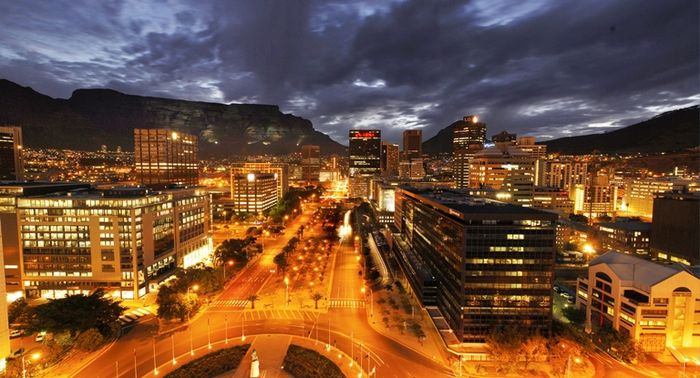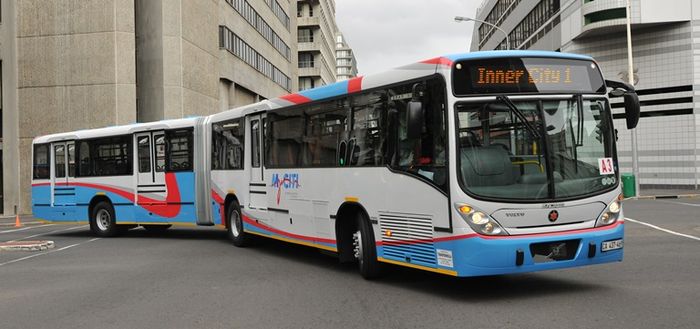28 March 2014
Earth Hour City Challenge 2014
Journeys Towards Sustainability – City Of Cape Town



The City of Cape Town’s progress towards sustainability is based on a participatory approach, which brings together local businesses, residents and NGOs.

These stakeholders plan around and seek to address the many challenges the growing metro has to face. A high level of commitment is evident in the fact that constituencies across the board provide input into decision-making processes, resulting in a strong sense of ownership.
Sarah Ward, Cape Town’s Head of Energy and Climate Change, is responsible for spearheading the city’s sustainability journey, and says it is deeply committed to its goals. And while the theme of this year’s EHCC is renewable energy, the administration sees this within a greater context that includes more effective usage of existing resources. Energy sustainability, it believes, has to begin with improving efficiency in relation to existing capacity, and this approach is helping to secure short-term sustainability under extreme supply pressure.
Renewable energy projects are, however, being planned and implemented simultaneously – in cooperation with local communities – and it is by using this two-pronged methodology that Cape Town is actively working towards securing sustainability in both the immediate future as well as in the long term.
From an energy conservation point of view, the city focuses on both commercial and residential users, providing useful information and engagement platforms to encourage more efficient usage. A top priority, for instance, is improving energy efficiency in the commercial sector, and this is being done in partnership with other stakeholders through the Energy Efficiency Forum for Commercial Buildings.

Globally, commercial buildings use about 40% of the world’s energy, consume approximately 20% of its water resources, and are responsible for around 33% of total carbon emissions, so this is a very important place to begin on the path towards sustainability. And with pressure on local power supply causing electricity tariffs to climb, the Cape Town business sector has an added incentive to participate in the forum, which is a collaborative effort between the city, Eskom, the South African Property Owners’ Association (SAPOA) and corporate partner, Old Mutual.
The forum provides the owners and managers of offices, shopping centres, hotels and other commercial and public buildings with user-friendly information on how to choose, install and manage energy-efficient systems. It is also a platform for collective action and shared learning, providing regular opportunities to swop information about getting to grips with policy issues, retrofitting old buildings, choosing the right financing options, and training staff to be energy efficient.
At residential level, the city has launched an easily accessible and informative electricity savings campaign which, among other things, provides tips on how to save power. Few people, for instance, realise that taking a shower uses five times less electricity and 40% less water than taking a bath, or that compact fluorescent light-bulbs use six times less electricity than ordinary light-bulbs.
By making information such as this available to consumers, they can make relatively easy changes at home, which can help them to reduce consumption and bring down their electricity bills. Cumulatively, these savings help to improve the metro’s overall energy efficiency significantly.
From a developmental point of view, Cape Town is taking the opportunity to introduce energy conservation and renewable resources at the same time. In just one example, residents in the low-cost housing development of Mamre are benefitting from a programme focused on retrofitting existing homes with new ceilings. A project of the city’s Environmental Resource Management Department, it is part of its Urban Environmental Management Programme, which is funded by Danish Development Aid. The 230 homes benefitting from the programme were built before the National Housing Subsidy allowed for ceilings, and these will help residents to cut down on the cost of heating and cooling their homes, as well as improving their quality of life.

Project beneficiaries are vulnerable groups in the community such as elderly, unemployed, chronically ill and disabled people, as well as child-headed and single-parent households. To date, 65% of the planned roll-out is complete, and all of the remaining houses will have ceilings fitted by the end of the year. Yet another project, which aims to facilitate the shift to renewable energy, is Cape Town’s Solar Water Heater Programme. This initiative allows residents to make the conversion to solar water heating using accredited suppliers that offer favourable terms to make the conversion.
“This encourages residents to make the change even though the technology is still relatively expensive,” says Ward. “It’s just another aspect of the city’s on-going sustainability journey.
The City of Cape Town has adopted a holistic approach to sustainability based on tackling immediate challenges with real solutions. Each project and programme then builds on what has gone before. It’s like building a strong wall – brick by brick.”
Download Cape Towns 10 points of global recognition here!
Pictures by Bruce Sutherland, CCT

